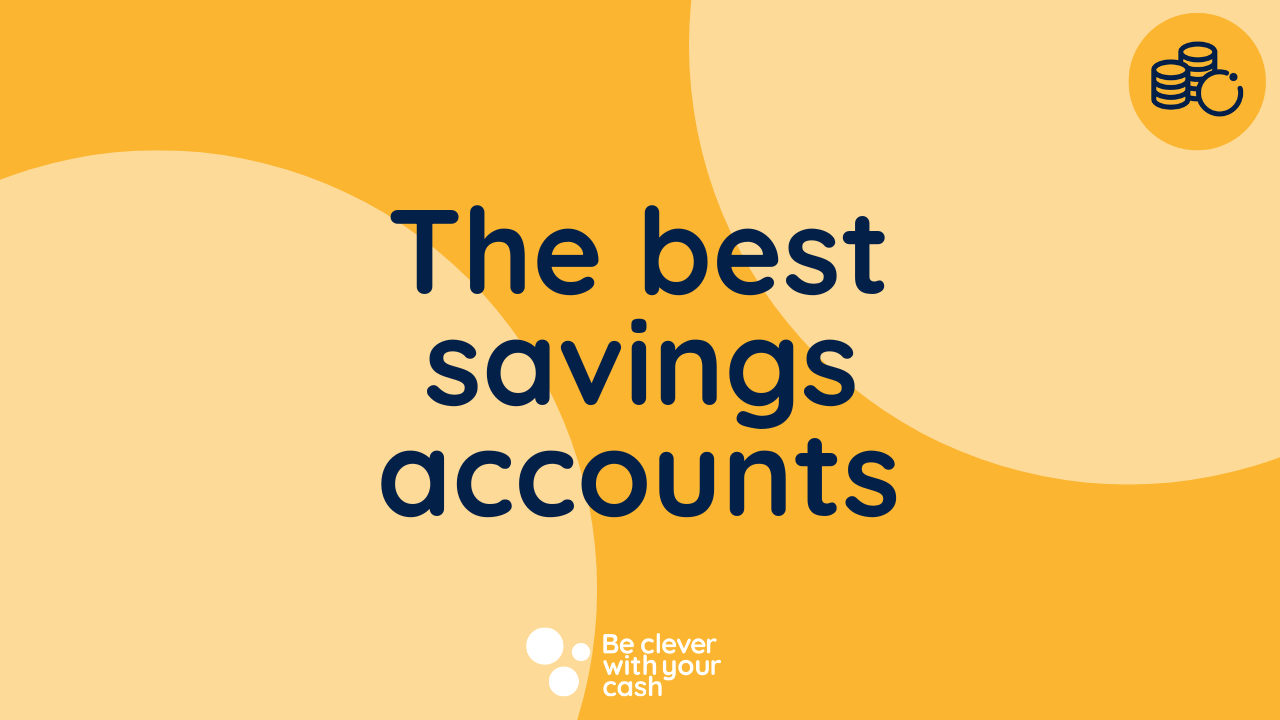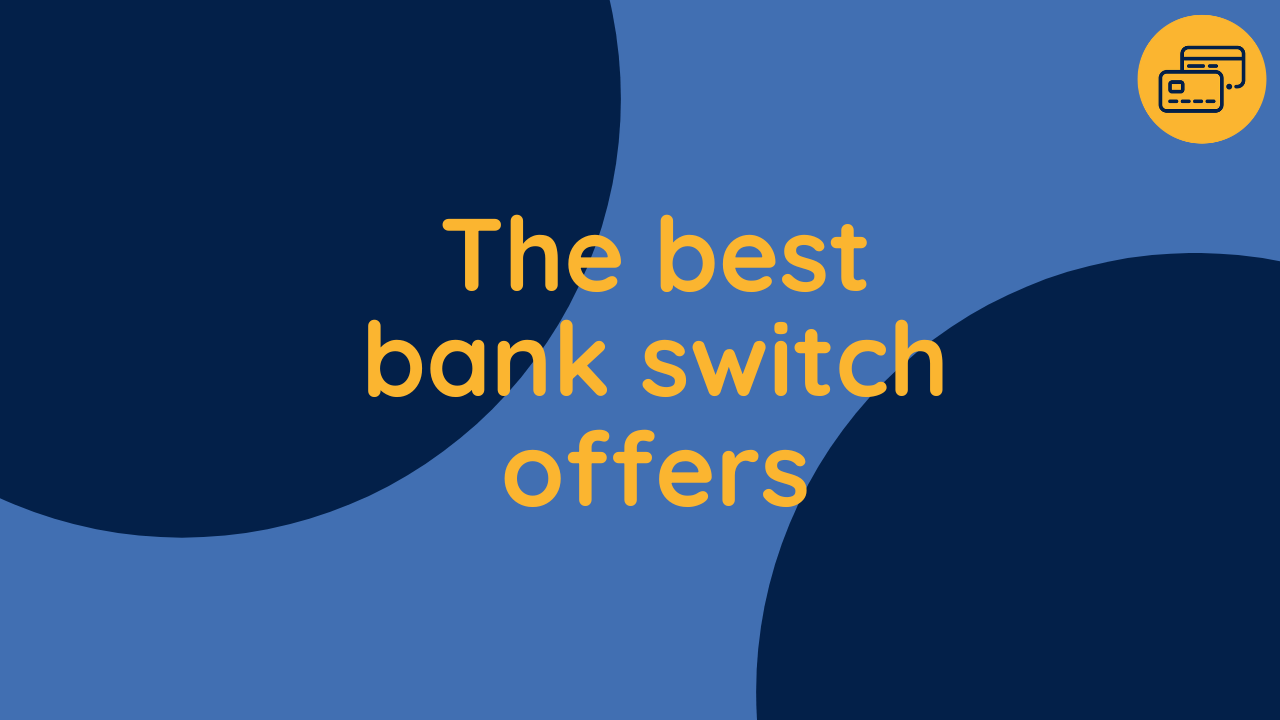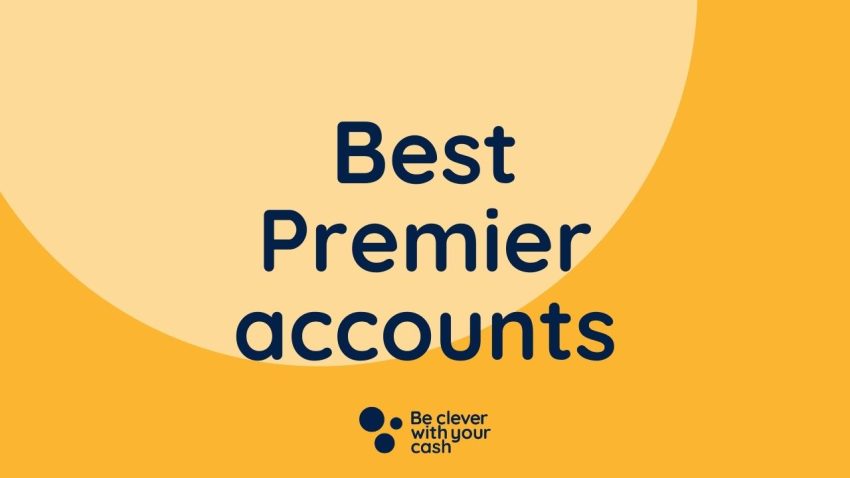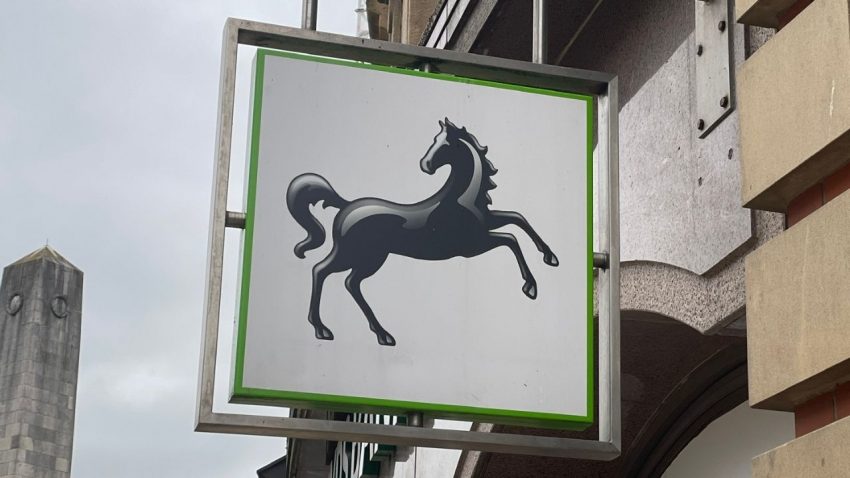Having one bank account isn’t just risky, it could be costing you cash.
Lots of people only have one current account. And if they’ve not yet switched it for some free cash, they’ve probably had it for a long time.
But limiting yourself to a single account – whether through loyalty, indifference or simply not knowing you can have more – is a bad idea.
And opening up new accounts can bring benefits when managing and accessing your money – and even making some extra cash.
Keep reading or watch this video to see why I think you should have more than one account.
Some articles on the site contain affiliate links, which provide a small commission to help fund our work. However, they won’t affect the price you pay or our editorial independence. Read more here.
Can you have more than one current account?
Let’s get this cleared up first. Even though many think they can only have one, there’s actually no limit to how many you can open from different banks. You might even be able to have more than one from the same institution.
Due to my job, I’ve got a number of current accounts (it’s actually up to 23 now), but most of you won’t need anything near that many. In fact even just having two can be enough.
And there’s very little risk in opening and running multiple accounts. I’ve shared a few things to consider further down the article.
10 reasons to have more than one current account
Here are the main reasons I think you should open up extra accounts.
If your bank has technical issues
We rely so much on online and app banking nowadays that not having access for even a few hours can be much more than an inconvenience.
This week Lloyds, Halifax and Bank of Scotland apps were all down thanks to the Amazon Web Services downtime, and that’s not the first time something like this has happened.
The TSB debacle a few years ago saw people unable to access their wages or pay their rent. Though the length of time the TSB systems were down has been an isolated incident, occurrences of website crashes and app downtime for hours are increasingly frequent at a number of banks.
And the risk of this happening to your bank is the number one reason why I think you should have at least two current accounts. In this second account put enough money in there that you can cover essentials for a few days. If you can put more, then even better.
Make sure that this second account isn’t part of the same group as these tend to share technical systems. So If you’ve got a Halifax account, make sure the second isn’t Lloyds, and visa versa. And the same for Natwest/RBS. I think First Direct and HSBC have different systems but it’s can’t hurt to do the same.
To separate your savings
When I was younger I was guilty of just having all my money in one account – savings and spending. Which meant that I didn’t ever really know how much I had in savings, and it was possible to “accidentally” dip into those funds with everyday spending.
The answer to avoid this is to open up a separate account and move all your savings over. Then set up a standing order to regularly move more money each month.
You could of course put this cash in a normal savings account, but the top rates right now are in a handful of current accounts.
You can get 6% on up to £4,000 with Santander, while there’s 5% for one year on up to £1,500 with Nationwide’s FlexDirect. You can also get even better rates, between 6.25% and 7.1% in linked regular saver accounts with First Direct, Co-op Bank, Lloyds, Nationwide and Zopa that require a current account with that bank.
These are far higher than you’ll get anywhere else for cash savings right now. I’ve written more about the best place for savings here.
To keep your overdraft debt separate
This trick also works if you have a huge overdraft. If you’re regularly in the red, it can be hard to track how much if you’re also spending out of the same account.
But if you open a separate account for your everyday spending, you can begin to treat and manage the overdraft debt as you would any other owed money, such as a loan or credit card. That’ll help you focus on clearing it (especially since you’re likely paying a huge 40% interest on that cash).
To protect your cash from scammers
Sadly there are more and more scams aimed at your bank accounts. From fake phone calls through to phone thefts, you’re at risk if you have all your cash sitting on one place.
Of course, if a crook does get access to one account, they might also be able to access others at the same time, so make sure your accounts are protected in advance.
Get the best of our money saving content every week, straight to your inbox
Plus, new Quidco customers get a high paying £18 welcome offer

To manage your money with someone else
Every couple manages their money differently. Some only have their own accounts and that can work fine. But joint accounts are particularly good for joint expenses.
You need to have a chat with your partner about what works best for you, and it could be a joint account is a bad idea – especially since it will link you on things like your credit report.
For help with budgeting
I think it’s worth having a separate account too for your everyday spending. You only move over the cash you want to part with, whether on a weekly or monthly basis. Ultimately this will stop you overspending and also help you keep track of where your cash is going.
There are certain accounts that make this a lot easier. Monzo, Chase, HyperJar and Starling are all really good accounts for this as they also have additional pots or spaces to further break down your spending.
 Featured switching deal
Featured switching deal
 Customer rating
3.8/5
Customer rating
3.8/5
- Switch bonus£200
- Offer endsUnknown
- Extra bonus£25 Amazon Gift Card
- FSCS Protected? Yes
- Switch bonus requirements Switch using the Current Account Switch Service and close your old account within 60 days of starting the switch
- Deposit requirements Deposit £1,500 in the first 60 days from opening the account
- Direct debits transferred over Set up two Direct Debits before or after the switch from a selected list of household bills
- Existing customers? Can't have held any Santander current account on 1 January 2025
- Restrictions Can't have received a switching bonus from Santander already, offer limited to once per person
- Eligible accounts Open a new or hold an existing Everyday, Edge, Edge Up or Edge Explorer current account
- £25 Amazon Gift Card requirements To qualify for the gift card, you need to complete a full switch using CASS, and make five debit card transactions within 30 days of opening the account
To make some money
If you only want a maximum of two bank accounts a really good option is to make sure one of them is going to be making you money.
There are plenty of accounts offering freebies such as Disney+ and cinema tickets or even money each month. The more of these you have the more you’ll get.
The best is probably a cashback current account. One from Chase will pay you 1% back on supermarket and transport spending via the debit card. The other from Santander earns 1% cashback on your bills. Unless you don’t pay things like Council Tax, energy or broadband bills then you will make money.
To keep switching
I’ve made a lot of cash by switching from bank to bank and nabbing incentive bonuses each time. Now some people struggle with the idea of switching once, let alone repeatedly, and in part that’s because they like the bank they are with.
Well you can get around this by having a separate account that you just use for switching. The offers come and go (there have been none during lockdown), but there’s no harm having an account ready for if/when offers appear.
If you need to go into a branch
I’d also try to ensure one of your accounts – and again this can work if you only have two accounts – has a branch that you can physically walk into if you need to.
Though I rarely need to go into a branch these days, there are times I do. In the last few years I’ve had to take out a large amount of cash, sign forms and pay in cheques (though as I wrote some banks allow you scan cheques via the app). Going back not too much further, I popped into a Halifax after there were some fraudulent transactions on my card.
Yes you can cover a lot of this online or over the phone, but I like the option to go into a branch if I feel the need. And if you’ve multiple accounts it’s easy enough to make sure one of those is local.
For fee-free overseas spending
A final one to add to your wallet is an account with Chase, Starling, HyperJar, First Direct, Monzo and others all offering fee-free spending abroad. Here’s more in guide to specialist travel cards.
Multiple current accounts and your credit score
Before applying for a new account, make sure your credit report is up to date and there aren’t any obvious warning signs. This is because you will be credit checked each time you open an account (except with Monzo, Chase or Starling).
It’s worth spacing the applications out rather than doing them all at once. And if you’re thinking of applying for a mortgage in the next six months it’s wise to just hold off until that has gone through. But the risk is minimal.
I’ve written more about how bank switching impacts credit scores here.
Opening up additional current accounts
It’s very easy. You simply pick which account you want to open and go through the application process. You’ll enter details about your address history and income, and share ID such as your passport or driving licence.
Some accounts will let you do this completely online, and will absolutely be the case for digital only banks such as Monzo, Starling and Virgin Money. You’ll probably need to upload photos of ID.
Others might require you to visit a branch with ID to complete the process. I can’t say which ones will and won’t ask for this, but this happened for my Natwest and Barclays applications.
How to manage multiple current accounts
Some benefits that come with additional accounts require things like additional direct debits or minimum payments in every month. But there are tricks to manage this.
You might also struggle to keep tabs of your many accounts, but some banks let you add on accounts from other banks, while there are apps like Snoop and MoneyHub which aggregate all your balances onto one screen. Password managers such as Bitwarden also allow you to safely store all those different passwords and usernames.
And those only really become issues if you are having lots of accounts. If we’re talking about opening just two, three or maybe four accounts you shouldn’t have any problems.
Our podcast
Listen to Cash Chats, our award-winning podcast, presented by Editor-at-Large Andy Webb and Deputy Editor Amelia Murray.
Episodes every Thursday.









Hi Andy I’ve done bank swops with the main banks that you have recommended, and I notice you say you can open up a second bank account with some of these banks but does mean you can get a further financial offer on the second bank account. John
There is also the chance that your bank can just shut your account without notice, which happened to my partner when she went to take money out of a cash machine. It never worked and when she went on app she had no access to account. When she phoned she was told that all the accounts were closed
Thanks Andy,really useful article. I will now open another current account,so I have two Accounts.
It Just Makes Total Sense To Have Two Current Accounts.
I am with TSB,So I know What Happened,With The IT Meltdown.
It Caused Me Such Problems.
Once Again Great Article.
Given the current situation in the world economy,how likely is it that banks could collapse and renegade on the financial guarantee of £85000 ?
It’s a government protection so that would have to be a massive collapse!
I had to pull up Personal Capital and count them. Looks like I have nine bank accounts, all with significant amounts of deposits. Needless to say I share your views that it is good to have more than one.
Andy -TSB are now paying only 1.5%
Oops, must have missed that in the update! Thanks Brian
Wow always a plus to here about those banking/financial points. Wake up call for me as I only hold one bank account so in the event of a banking computer crash I will in big troubles. Was very very very usefull many thanks.
Great article. And you’re right to point out that tracking multiple accounts has gotten even easier with ‘open banking’ and the invention of multiple account tracking apps like Yolt. They allow you to reap the benefits of multiple accounts without the drawback of having to login to each and every one to keep on top of your savings.
One further reason for having at least two current accounts is the possibility of your bank “freezing” your main account .There are many stories of this happening to innocent people who have been unable to carry out ANY transactions until the matter is resolved.A second account makes it fairly straightforward to have income payments received and payments out to be made
Good thought!
Yeah this happened to me years ago. all my money was in the Post office bank and they went on strike. It was a disaster. I phoned them up and asked, couldn’t they make an exception, it was all the money I had and I couldn’t eat, and they said no. I cried. It had no effect. Bastards.